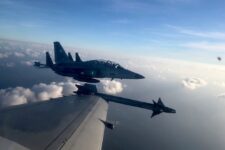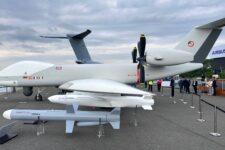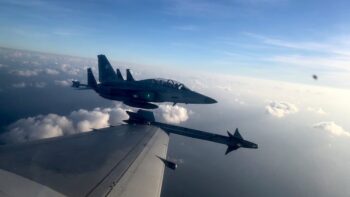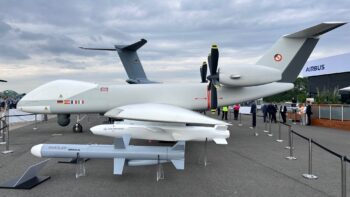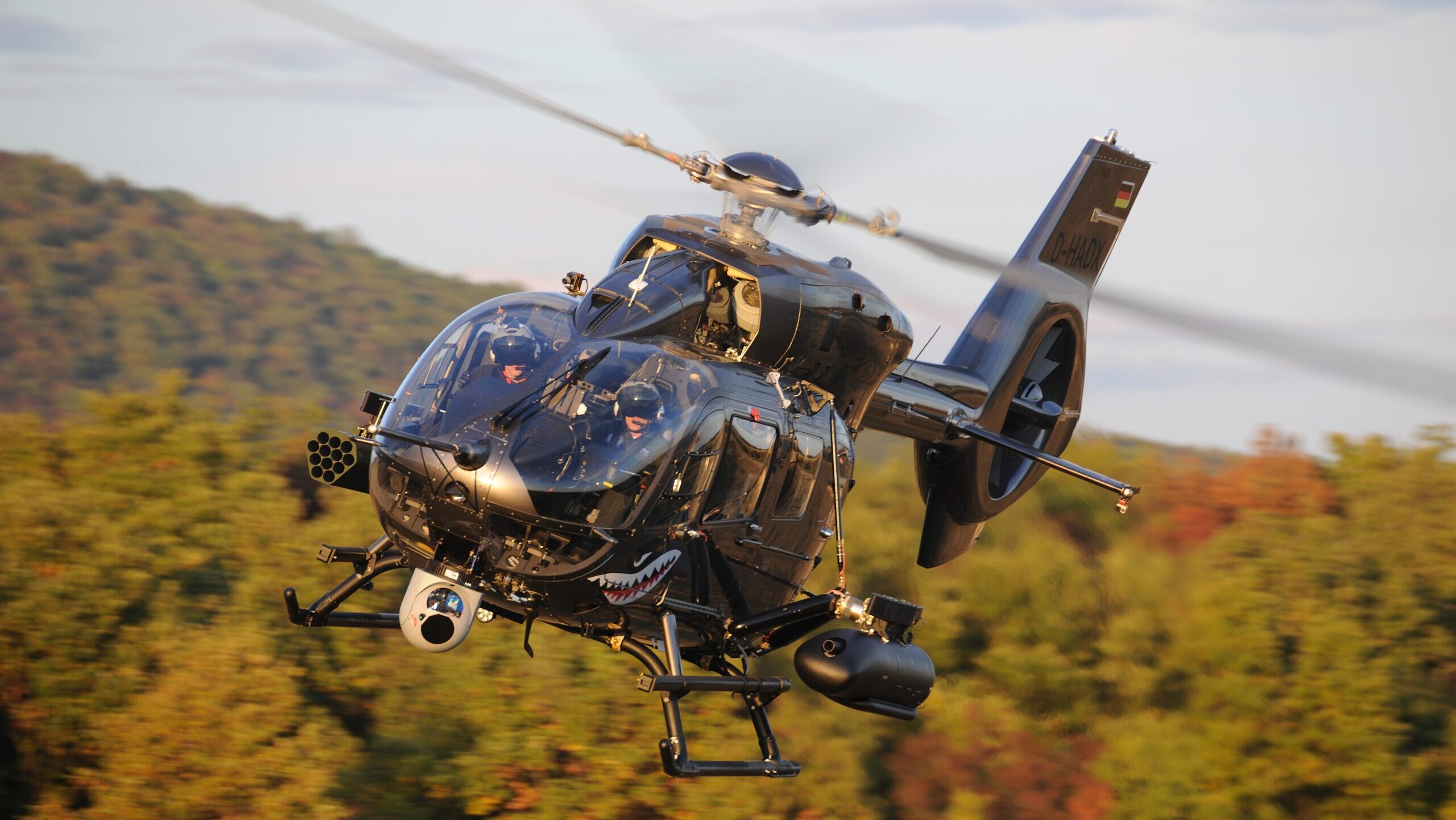
Germany has placed an order with Airbus for 62 H145M light attack helicopters with an option to acquire an additional 20 units (Airbus Helicopters)
BELFAST — Germany has struck a deal with Airbus for up to 82 H145M light attack helicopters, the largest order of the aircraft to date.
The manufacturer announced the contract in a company statement today but did not share a contract value.
“These are two topics we are not allowed to disclose,” said an Airbus spokesperson in a statement to Breaking Defense about the H145M pricetag or what weapons may go on it. Defense News reported Berlin was prepared to pay $2.3 billion.
The deal specifically covers a firm order of 62 helicopters with an option for an additional 20 units. A total of 57 rotorcraft will be acquired by the German Army. German Special Forces will receive the other five platforms.
“This is the largest order ever placed for the H145M and consequently the largest for the HForce weapon management system,” said Airbus, adding that the terms of the agreement include seven years of support and servicing, for “optimal entry into service.”
Bruno Even, CEO of Airbus Helicopters said the company “will ensure” the helicopters are delivered against Germany’s tight program schedule, which includes a first aircraft delivery next year. All deliveries to Berlin are expected to be completed in 2028.
Germany’s procurement arm, the Federal Office of Bundeswehr Equipment, Information Technology and In-Service Support noted in a statement today that the aircraft will be “part of a bridge solution,” amounting to an interim buy, to replace Tiger attack helicopters. (The German Ministry of Defense did not immediately respond to Breaking Defense’s request for additional information about the sale.)
The procurement arm also shared that the contract will be “primarily financed” by the country’s €100 billion ($109 billion) special arms fund, originally announced after Russia’s invasion of Ukraine, to boost defense spending and accelerate orders.
Thank you @bundeswehrInfo @BMVg_Bundeswehr for your trust! We are proud to contribute to keeping Germany and Europe safe with our #H145M helicopters. You can count on our full support. pic.twitter.com/tLz2jRiy89
— Bruno Even (@BrunoEven) December 14, 2023
The H145M acquisition was first approved in parliament by Germany’s budget committee on Wednesday, leading the procurement office to place a contract with Airbus.
“When purchasing the helicopter, the Bundeswehr deliberately chose a type of helicopter that was available on the market and was already used by the special forces and for rescue missions,” added the procurement office.
Integration of the HForce weapons management system enables ballistic or guided air-to-ground and air-to-air weapons firings. Airbus has previously test fired Israeli Spike ER2 anti-tank guided missiles from the H145M to increase lethality of the aircraft.
Alongside weapons, the H145M can be equipped with a range of defensive aids like electronic self-protection systems and ballistic protection items, noted the German procurement office.
The light attack helicopters are set to be operated out of the International Helicopter Training Center in Bückeburg, and German Army bases in Niederstetten, Fritzlar and Fassberg. Additionally, the German Air Force base in Laupheim will host the aircraft.
Berlin had indicated in May that it planned on placing a H145M order, based on a decision to phase out the Tiger attack helicopter by 2038, amid availability problems with the troubled aircraft. Berlin previously excluded itself from a Tiger MkIII midlife upgrade. France and Spain are pushing forward with it.
Cyprus, Hungary and Serbia have also bought the H145M. Like today’s deal, Airbus announced all of those deals without sharing respective contract values.
Separately, the manufacturer recently announced first flight of the German Navy’s NH90 Sea Tiger from the manufacturer’s Donauwörth production facility last month. Berlin has ordered 31 of the naval based rotorcraft.
Philippines to increase FA-50 fighter fleet, among moves analysts say complicate planning in Beijing
The buy from South Korea, maker of the FA-50, binds the Philippines even more closely to another US ally and highlights the costs to China of its bullying tactics.
